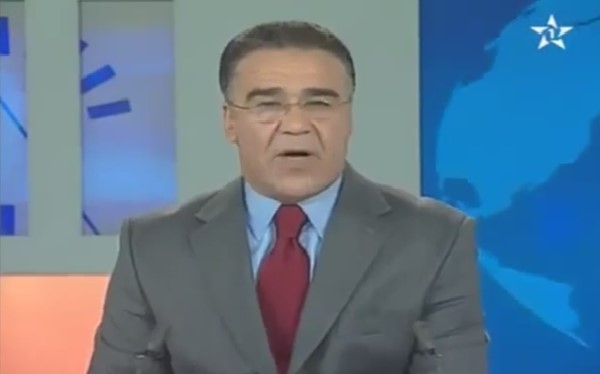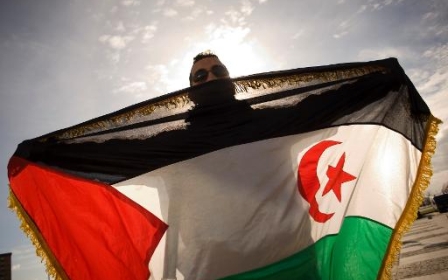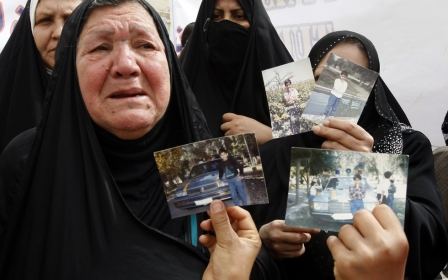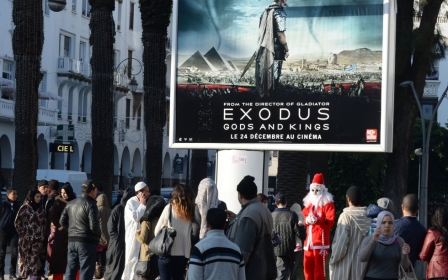Moroccan anti-Sisi jibe fuels Egypt spat

Relations between Egypt and Morocco have worsened after Moroccan state television described Egyptian President Abdel Fattah Al-Sisi’s 2013 takeover of power as a “military coup."
A four-minute segment aired on Thursday by Morocco’s state-owned Channel 2M outlet made a stinging attack against President Sisi, describing him as a “coup leader” who “deposed the elected president Mohamed Morsi."
Egypt’s current government took power in July 2013 under the leadership of then defence minister Sisi, after what they insisted was a popular uprising against the ruling Muslim Brotherhood and president Morsi, who had been elected just over a year before.
Sisi officially became president in June 2014, after election results showed that he won 96.1 percent of the vote. After the results were announced, Morocco's King Mohammed VI congratulated Sisi on his landslide victory.
However, Thursday’s report on Moroccan state television questioned the legitimacy of the ballot, saying Egyptians had shown a “reluctance” to vote during the election.
“The electoral commission estimated that the total turnout was around 47 percent, which means that more than 25 million people did not share in this decision [to elect Sisi].”
The report is the latest in what has been seen as a growing media spat between the two North African states, which usually enjoy good diplomatic and trade relations.
In July 2014, an Egyptian presenter provoked an outcry when she said that Morocco thrived on “economies of prostitution”, accusing it of having one of the world’s highest rates of HIV. Her inflammatory comments came during a segment in which she heavily criticised a special message sent by Khaled Meshal, leader of the Palestinian Hamas party, to the people of Morocco.
More recently, an Egyptian news anchor on the popular Dubai-owned satellite channel MBC caused an outcry last week when she lashed out at Morocco, dubbing it a land of “sorcery."
The Moroccan king has also faced criticism from the Egyptian media in recent days over a state visit to Turkey to celebrate the New Year.
Several Egyptian outlets drew attention to the lavish scale of the trip, which saw King Mohammed touch down in Istanbul as part of a convoy of five planes. Egyptian news site Hespress was also the first to report that the king was forced to pay a parking fine when Turkish officials refused to believe that he was Morocco’s head of state.
Moroccan diplomats have blamed such reports for the growing rift between the countries. One, who asked not be named, told the Turkish Anadolu Agency on Friday that the anti-Sisi report on Moroccan state television was a response to a recent spate of "offensive Egyptian media claims" against Rabat.
"There has recently been a series of Egyptian media reports that were offensive to Rabat and the Moroccan people," the senior diplomat said. "This is not an isolated occurrence. It has happened several times, the most recent of which was in regard to the Moroccan king's visit to Istanbul," he said.
Western Sahara at the heart of the row?
However, a second Moroccan diplomat, who also declined to be named, said perceived co-ordination between Egypt and Algeria on the issue of Western Sahara was behind the spat.
Morocco claims the disputed territory of Western Sahara as its own. However, the indigenous population of Western Sahara, represented by the Polisario Front, argue for the right to self-determination.
An Egyptian delegation flew to Algiers on 15 December to take part in a conference also attended by the Polisario Front, the de facto government of Western Sahara. According to the Moroccan official, the Egyptian delegation’s attendance at last week’s conference “angered Rabat."
Egyptian diplomats have not yet given any indication as to why the crisis might have erupted now. High-profile politician and commentator Mustafa Bakri has denied that there is a diplomatic spat at all.
Speaking on Egyptian satelite television, Bakri instead accused the Muslim Brotherhood of “hacking” into Moroccan television and producing the anti-Sisi report. “Of course we know that the Muslim Brotherhood have penetrated many outlets, including some here [in Egypt].”
Diplomats on both sides are getting involved in an attempt to end the stand-off. An Egyptian official said his country’s ambassador in Rabat, Ahmed Ihab, has been tasked with exerting “all necessary efforts … to nip the crisis in the bud."
"If these efforts are not successful, the foreign minister [Sameh Shukri] will visit Rabat to accomplish the job," the diplomat said
Middle East Eye propose une couverture et une analyse indépendantes et incomparables du Moyen-Orient, de l’Afrique du Nord et d’autres régions du monde. Pour en savoir plus sur la reprise de ce contenu et les frais qui s’appliquent, veuillez remplir ce formulaire [en anglais]. Pour en savoir plus sur MEE, cliquez ici [en anglais].




